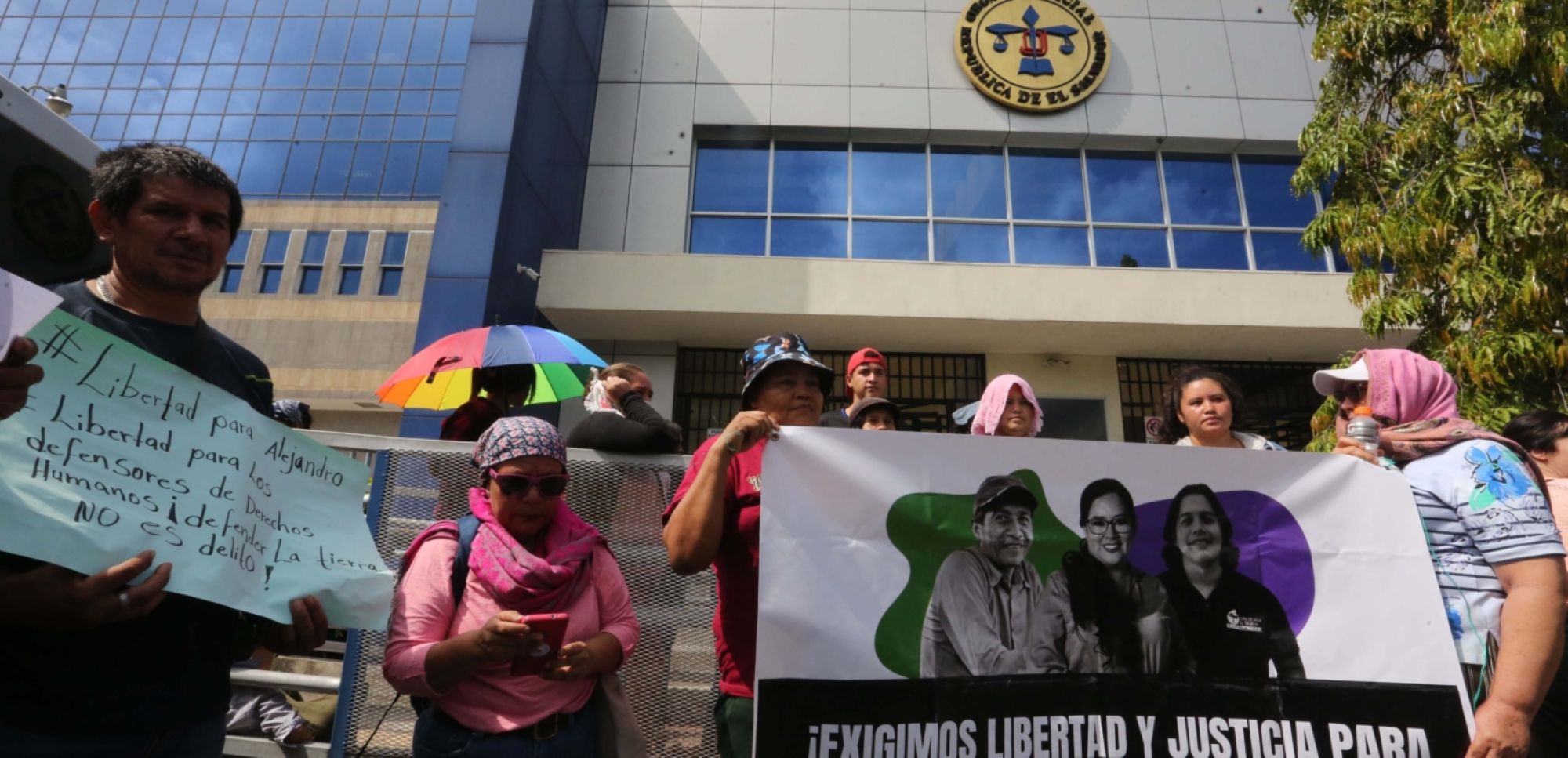Amnesty International warns that the state of emergency extended by the government and reforms to the penal system have undermined the rule of law in El Salvador.
This is due to the consolidation of a repressive apparatus that, instead of impartially delivering justice, is used as a weapon to criminalize human rights defenders and to silence critical voices, exposing them to a prison regime that threatens their personal integrity and their lives.
More than three years after it began, the state of emergency, which has already been extended 42 consecutive times, has established a model that gives the appearance of legality to mass detention without evidence, the suspension of judicial guarantees and the imposition of disproportionate terms of administrative detention.
At the same time, legal reforms in criminal matters and criminal procedure have introduced measures such as the concealment of judges’ identity, automatic application of pretrial detention and tougher punishments for children and adolescents. These reforms have been observed by regional and universal human rights bodies, who found that they contravene international standards.
“Instead of impartially delivering justice, the criminal justice system in El Salvador has become a weapon to punish dissent and stifle civic space. Defending human rights or protesting peacefully can cost you your freedom today”, said Ana Piquer, Americas Director at Amnesty International.
The right to defend rights under attack in El Salvador
Amnesty International has documented how the authorities have made use of broad and ambiguous criminal classifications such as “illegal groups” or “terrorist organizations”, to criminalize community leaders, trade unionists and defenders of the territory and the environment. For their part, local organizations have identified more than 70 cases of this type in which people have been victims of arbitrary detentions, deprived of their liberty and subjected to judicial processes without the guarantees of the rule of law.
Faced with intensifying persecution and criminalization of human rights defenders in July 2025, Amnesty International declared Ruth López, Alejandro Henríquez and José Ángel Pérez prisoners of conscience, determining that they were imprisoned exclusively for their work defending human rights and for peacefully exercising their freedom of expression.
Although neither the original decree of the state of emergency nor its extensions envisage its application to people accused of common crimes, in these three cases Amnesty International was able to verify how the Public Prosecutor’s Office and the judicial authorities applied the deadlines and suspension of procedural guarantees, despite the fact that the charges against them are not related to the actions of gangs.
Ruth, Alejandro and José Ángel were all subjected to the extension of administrative detention up to 15 days, and the imposition of pretrial detention without sufficient grounds or effective judicial review. Recently, the court hearing the case of Alejandro and José Ángel, who are being prosecuted for the crimes of resistance and public disorder, decided to extend the investigation phase for an additional three months, without there being, in principle, any new elements to be investigated. This decision violates the right to be tried within a reasonable time and supports the claim that in El Salvador pretrial detention has ceased to be an exceptional measure and become an early punishment, regardless of the crime for which the person is being prosecuted.
In Ruth’s case, arbitrary changes to the crimes being alleged was also verified, as well as the total secrecy of the process. The cases of other criminalized defenders and dissident voices documented by local organizations show similar irregularities.
Prisons as spaces for punishment and torture
The prison situation in El Salvador continues to be alarming: prolonged solitary confinement, extreme overcrowding, lack of timely medical care and the risk of torture characterize the prison system. This impacts not only the criminalized people, but also their families. The case of constitutional lawyer Enrique Anaya shows the dangers that a person faces when the system deliberately limits their right to an effective technical defense, aggravating risks even to their health{. His condition has deteriorated in detention. Fidel Zavala, spokesman for UNIDECH, faces a real risk of being subjected to torture or cruel, inhuman or degrading treatment, in a prison environment characterized by opacity, impunity and the absence of external controls.
“Prolonged solitary confinement and inhumane detention conditions are part of a deliberate strategy to instill fear and break both detainees and the communities they represent. The impact is devastating: self-censorship, reduced activities and an increasingly suffocated civic space”, added Ana Piquer.
On 23 September 2025, the Inter-American Commission on Human Rights (IACHR) granted precautionary measures to Ruth López and Enrique Anaya, warning that the prolonged solitary confinement and indefinite detention to which they are subjected put their lives, health and integrity at serious risk. The organization demanded that the Salvadoran State immediately cease the isolation and guarantee detention conditions in accordance with international standards.
Amnesty International calls on the Salvadoran authorities to immediately and unconditionally release all persons detained solely for peacefully exercising their human rights. It also urges the authorities to fully and immediately comply with the precautionary measures issued by the IACHR in favor of Ruth López and Enrique Anaya.
Finally, the organization urgently calls on the international community to intensify its scrutiny of the Salvadoran authorities, in order to curb the misuse of the justice system as a repressive tool.






















